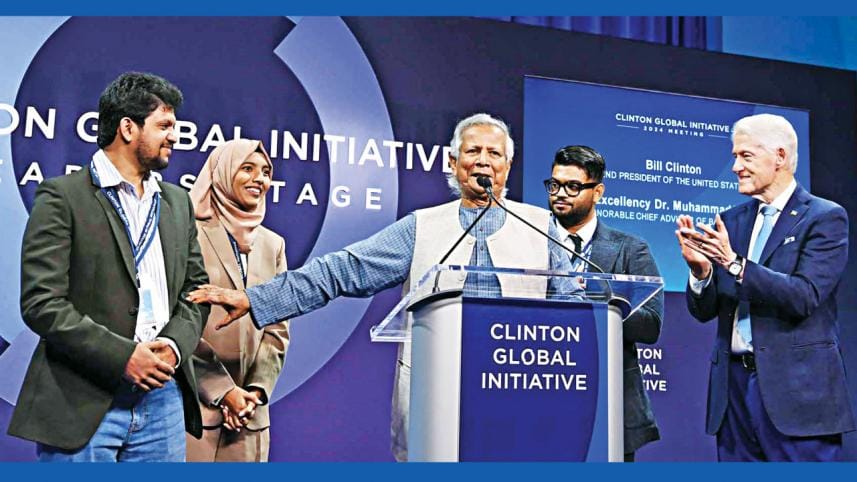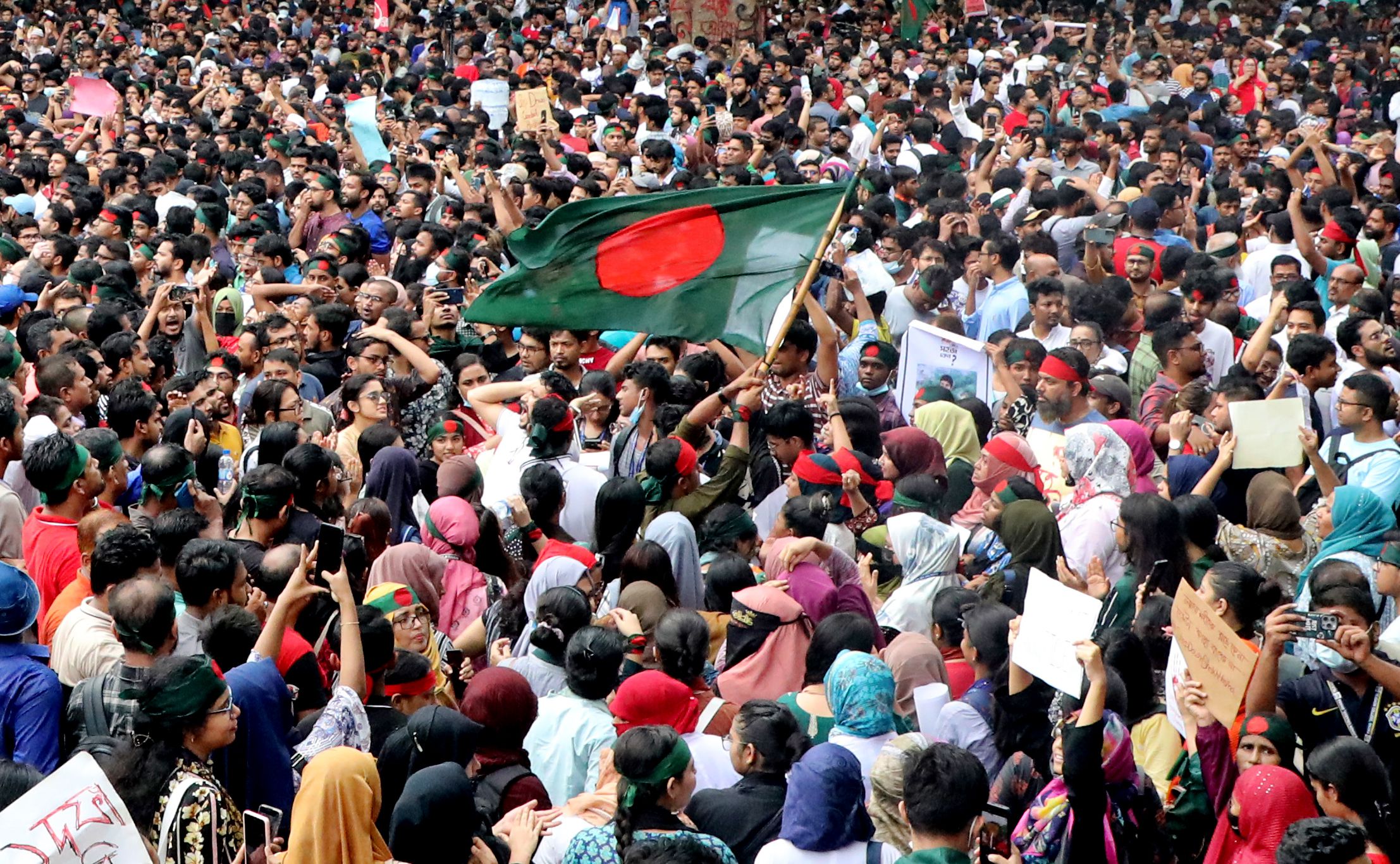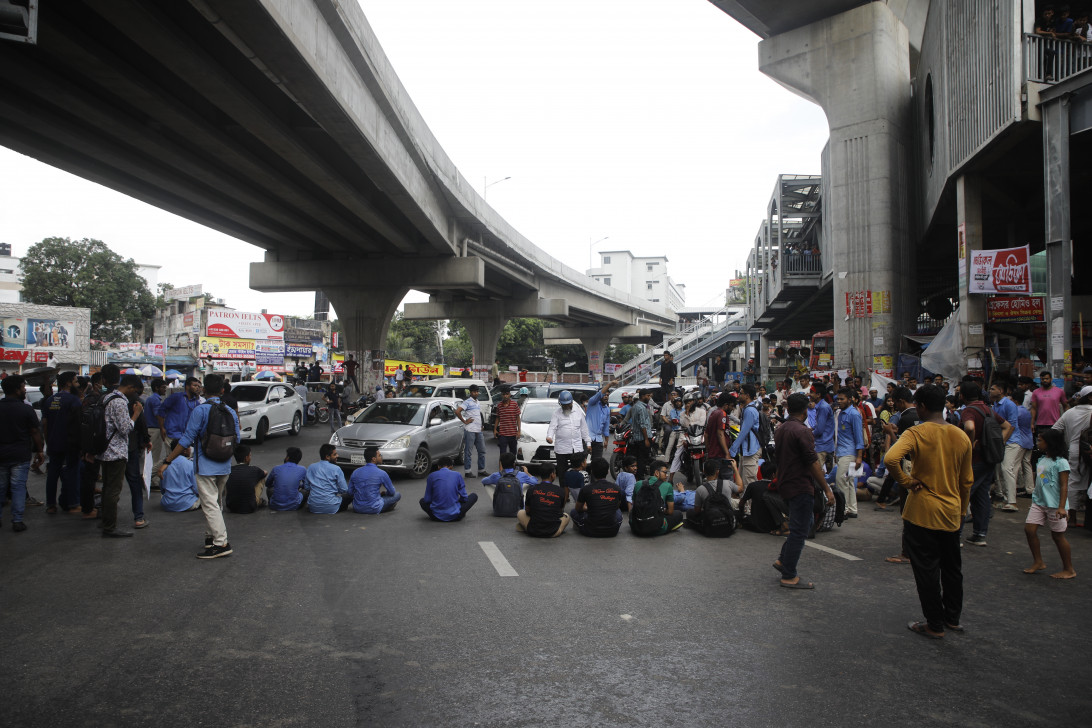Can you ‘mastermind’ an uprising?

The July uprising claimed the lives of hundreds of people, but resulted in a seismic shift in the history of Bangladesh. The movement was a perfect storm brewed by a number of contributing factors that all seemed to align as if by divine intervention, resulting in the ouster of Sheikh Hasina's tyrannical regime. Thousands of activists took to the streets—students, workers, professionals, and intellectuals alike. Each contributed in their own way. Why, then, is there this search for a "mastermind" behind the entire movement?
This search for a mastermind cannot be solely blamed on the media or overenthusiastic social media users. Even the interim government's Chief Adviser Dr Muhammad Yunus introduced Mahfuj Alam as the brains behind the movement at an international event—although Mahfuj himself refused to be called the mastermind, a fact even the chief adviser alluded to. This reminds me of a quote from Friedrich Hayek, who said that the curious task of economics (or social science) is to show people how little they know about what they think they can design. Hayek was wrong about many things, but one of his ideas has withstood the test of time: the concept of spontaneous order. Following the trend of classical liberal thinkers before him, Hayek believed that order could arise from spontaneity.
Many social norms are established not by the enforcement of explicit rules but spontaneously for the sake of efficiency. I believe social movements follow a similar logic.
A social movement is shaped by many factors, with a plethora of internal and external actors playing their part. The July uprising was no exception. It is true that there was an organisation providing a backbone to the movement, with stellar leadership initiatives and a distribution of responsibilities that contributed to its success. When one group of leaders was picked up by security forces, another stepped up to guide the movement. The well-defined demands that evolved over time were also crucial in bringing the movement to its one-point conclusion.
The formulators of these demands and those who pushed for the final anti-regime stance deserve commendation. But calling them the "brains behind the movement" seems like an exaggeration. In fact, most leaders were and still are unknown to the public, aside from the two advisers to the interim government and a few recognisable faces repeatedly shown in the media. Many other leaders worked behind the scenes and deserve credit. But the point of my article is to argue that attributing credit to specific individuals is misguided.
In social science research, we often say that there are "spandrels"—developments that occur as a byproduct of various factors, including time and context, almost by (sometimes fortunate) accident. These factors cannot be ignored. As many film directors and novelists would say, there are more characters in a story than just protagonists and antagonists. Sometimes, the setting or time itself becomes a character. In a similar manner, I believe the primary actor in the July uprising was not an individual but the city, the moment, and the momentum of that moment. As events unfolded, the movement evolved, and the perfect conditions were created for it to propel forward.
If any one individual had not been present at that moment, the movement would not have faltered—others would likely have stepped in to make decisions. We cannot know if those decisions would have been as prudent, but the momentum of the moment demanded nothing less than what transpired. Even if key individuals had been replaced, the outcome would likely have been similar, as the movement had already taken on a life of its own.
Many people are congratulating and valorising the efforts of the coordinators, who have become national heroes. But other actors also played crucial roles, such as activists of opposing political parties, journalists who risked their lives, and expatriates who helped raise international awareness of the situation in Bangladesh. Their contributions cannot be overlooked. More importantly, the spontaneous order that defined the movement should receive primary credit for its success.
Thousands of people participated in the movement, risking their lives, writing on social media, and demanding the removal of an autocratic regime even before the one-point demand came about. Such widespread enthusiasm cannot be engineered—it can only be sparked by the momentum of the moment, which was the primary factor in the movement's success.
I am not undermining the efforts that the student leaders put in. They deserve credit for stewarding the movement. But can they really be called the masterminds, as if they planned every step and pre-designed the entire movement in their minds? Nobody could predict what would happen the next day as the movement progressed. The decision of the student leaders to launch the one-point programme upon their release from the custody of security forces was certainly pivotal, leading thousands to march to Ganabhaban on August 5. But the moral legitimacy of the Hasina regime—if there was any—had entirely vanished the moment the first bullet was fired at students. The student coordinators had no choice but to declare an all-out movement against the government—it was the demand of the moment, not a pre-designed plan.
In fact, I can attest to private conversations with movement leaders who confessed they never imagined the movement would become so massive and succeed in toppling the government during its early days. Hence, attributing the role of masterminds to the leaders is a bit of a stretch. It is natural for us to seek order and reason in historical events that defy explanation, but to claim that there was a mastermind behind the July uprising is to oversimplify a complex and multifaceted movement.
Anupam Debashis Roy is the editor of Muktipotro and a Phd student at the University of Oxford. He can be reached at anupam.roy@sociology.ox.ac.uk.
Views expressed in this article are the author's own.
Follow The Daily Star Opinion on Facebook for the latest opinions, commentaries and analyses by experts and professionals. To contribute your article or letter to The Daily Star Opinion, see our guidelines for submission.




 For all latest news, follow The Daily Star's Google News channel.
For all latest news, follow The Daily Star's Google News channel. 

Comments